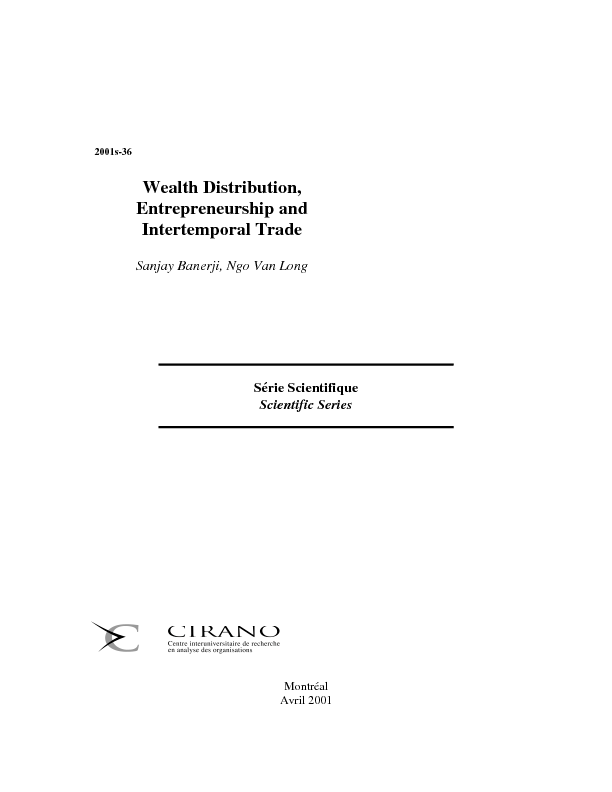Wealth Distribution, Entrepreneurship and Intertemporal Trade
This paper examines the pattern of intertemporal trade between countries with different distribution of wealth. We also examine the consequences of redistribution policies in this framework. The driving force of our model are risk aversion, capital market imperfections, and costs associated with default. We show that under capital market imperfections due to moral hazard, the very rich and the very poor do not undertake any risk and become passive lenders. Only individuals whose wealth lies within a medium range choose to become entrepreneurs. At any given rate of interest, a country with with a wealth distribution that is relatively less skewed to the left will have a greater supply of entrepreneurs, leading to a higher equilibrium interest rate under autarky. Hence, when the countries are opened to trade, those economies with highly skewed distribution (to the left) will become net lenders. Redistributive policies therefore will have impact on intertemporal trade. For example, if a government adopts a bail-out policy (a redistribution from successful enterpreneurs to unsuccessful ones) will increase the supply of enterpreneurs, driving up the autarkic interest rate. Consequently, a country which would be a lender if there were no bail-out policy is a net borrower under the bail-out policy.
[ - ]




